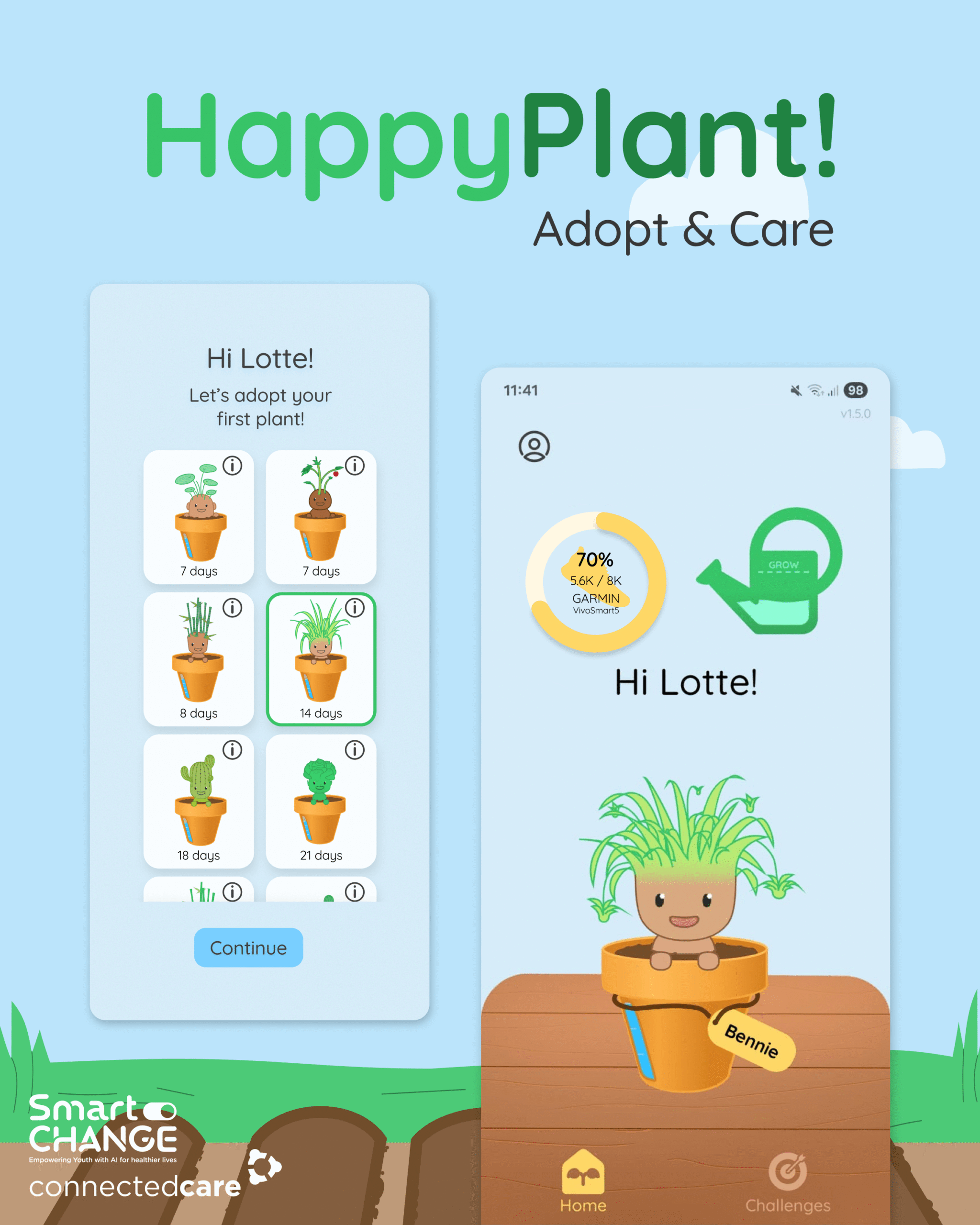SmartCHANGE, a Horizon Europe project to support healthy lifestyles and reduce the risk of chronic diseases in children and adolescents, has launched feasibility studies to test AI-based tools in real-world healthcare contexts. Taking place in Finland, the Netherlands, Portugal, Slovenia and Taiwan, the studies are designed to test new AI-based applications to promote healthier behaviours in diverse settings. Taiwan is included to assess the solution’s potential for global transferability.
SmartCHANGE says the studies will involve about 25-35 healthcare professionals, and around 500 families. Participants will wear an activity tracker on their wrist and have access to an app. As well as exploring user experiences, the trials will investigate how to make complex AI-generated risk predictions more accessible and understandable for healthcare professionals.
Designed for use by healthcare professionals, the app will provide an overview of the participant’s overall health and will help predict the likelihood of future risks by analysing parameters, such as clinical data, lifestyle data and family history. To reduce the health-related risks, healthcare professionals can assign behaviour change goals, such as improving physical activity, diet and sleep.
“This solution provides healthcare professionals with a deeper understanding of children’s health because, in addition to medical data, it integrates lifestyle data, and enables them to track the intervention,” explains Gregor Jurak, head of SLOfit research team and a full professor at the Faculty of Sport at University of Ljubljana, which is involved in SmartCHANGE. He notes that healthcare decisions are usually based on body mass index, but this indicator has its limitations. For example, some young people may have high body mass index due to genetics, but still be fit and healthy.
SmartCHANGE relies on more comprehensive data, with a particular focus on fitness activity. It helps identify children at risk who may not be detected through body mass index classification. Through the app, doctors can provide recommendations, track whether patients follow them and make adjustments based on the patient’s health status. To protect privacy, the SmartCHANGE web app only allows the personal data of young people to be accessed by healthcare professionals, authorised by their parents.
SmartCHANGE has conducted unique research to develop risk calculations based on childhood data, explains Tuija Tammelin, a principal researcher at Jamk University of Applied Sciences, which is also participating in the project. The work also incorporates previously-collected data from other studies. “While similar risk prediction models exist for adults, this is the first one designed for children and adolescents,” Tammelin notes.
She underscores the impact that early life events have on long-term health outcomes. The solution helps identify young people at risk who may benefit from early support in developing healthy habits. “On the other hand, when we speak with children and their families, we focus less on future health risks and more on encouraging them to make healthy choices now and to recognise the positive habits they can build on,” she adds.
Engaging citizens through gamification
In addition to tools for professionals, the project has developed an app called Happy Plant for citizens. Happy Plant exists in two versions: one for adolescents and one for families with young children. Users can adopt and take care of their personalised digital plant, which flourishes as they take steps to improve their health. To make the experience more engaging, SmartCHANGE incorporates gamification and educational elements which were co-designed with future users, such as a weekly health quiz.
Slovenia launched pilot testing in May, which served to improve various app features, such as the plant-watering feature. This study focuses on younger children and uses a community-based approach involving school doctors, paediatricians, exercise specialists, psychologists and dietitians. “We are working on improving the app for healthcare professionals to provide a holistic assessment of health risks,” Jurak says, adding that Slovenia is collaborating with the National Institute for Public Health to integrate youth health data into the country’s e-health system.
In Finland, the study is school-based, led by school nurses, and includes children aged 11–14. SmartCHANGE has begun training school nurses and plans to recruit about 100 children and adolescents. “Children and adolescents were involved in planning the content for the Happy Plant application, and school nurses contributed to the development of the web application,” Tammelin explains, adding that designers used this input to ensure the app is user-friendly.
The feasibility studies will run through the 2025-2026 school year. As the next step, researchers will collect data to evaluate behavioural changes. They will also assess the effectiveness of the solution in supporting lifestyle adjustments and risk evaluation.


